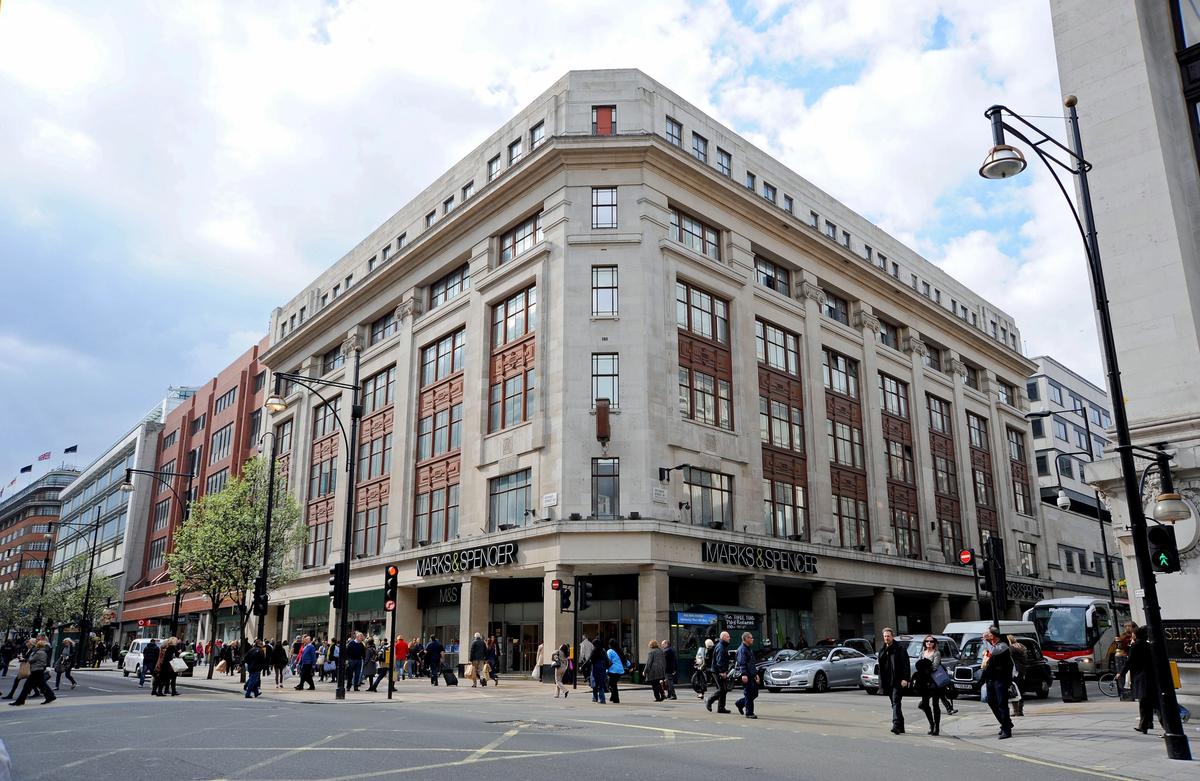The fate of one of Oxford Street in London’s most recognisable buildings is now in the hands of a judge following a two-day hearing that could have consequences for other heritage sites in the UK.
The unlisted Orchard House has been the flagship store of the retailer Mark‘s & Spencers since 1929, however the company is seeking to tear it down and replace it with a new ten-story retail and office complex. These plans were approved by Westminster Council and the Mayor of London Sadiq Khan, and were ultimately backed by a planning inspector. But the bulldozers have been held at bay by Michael Gove, the UK’s levelling up, housing and communities secretary, who rejected the proposal.
In his decision letter in July last year, he said the loss of the building would harm surrounding heritage assets at Marble Arch, such as the adjacent Grade II* listed Selfridges building and the wider conservation area. He also cited that demolishing tons of concrete and metal and constructing a replacement would release around 40,000 tonnes of carbon dioxide and “impede the UK’s transition to a zero-carbon economy.”
The decision was appealed by M&S, which is what led to this week’s hearing at the High Court. Mrs Justice Lieven was told by lawyers for the retailer that Mr Gove had “misunderstood and misapplied” planning rules when he assessed that the building could be refurbished rather than demolished. But Paul Shadarevian KC, representing the Department for Levelling Up, Housing and Communities, said Gove was entitled to say that in the circumstances of this case, there should be a strong presumption in favour of reusing buildings and that he both understood the inspector’s conclusions and gave adequate reasons for disagreeing with them.
Historic England has refused to list Orchard House on the grounds that it has been altered too much since its original construction and it also sits outside the nearby conservation area.
M&S, meanwhile, argues that although the work would release large quantities of embedded carbon, the new building would be one of the capital’s greenest and better for the environment long term than Orchard House. On the first day of the hearing Sacha Berendji, M&S Operations Director said: “When our proposal to bring one of London’s most sustainable and energy efficient buildings into the heart of the West End is rejected and other schemes with lower sustainability benefits are going ahead, it makes it impossible for developers to interpret planning policy, freezing investment and leading many to ask ‘why bother’, which is a disaster for the economy and the transition to Net Zero.”
Although Mr Gove has said he doesn’t think his decision should set a precedent about the merits of rebuild versus refurbish, the campaign group SAVE Britain’s Heritage has suggested otherwise. Henrietta Billings, its director, said: “This case shines a spotlight on our disposable knock-it-down-and-rebuild attitude. It was the first time heritage and sustainability were jointly at the heart of a public inquiry and there has been significant media interest.
“The way we build has to change. Many progressive developers are already embracing the opportunities of comprehensive retrofits and it is exciting to see the creative ways they are reusing buildings. We are proud to be part of shifting the dial.


